What are mobile data terminals in law enforcement, and what is a mobile data computer (MDC)? These two terms are interchangeable; gone are the days of “terminals,” which means the industry has moved from the term “mobile data terminal” or MDT to “mobile data computer” or MDC.
When law enforcement officers respond to calls, they depend on reliable, secure, connected mobile data computers.
Police officers and other first responders need to send and receive information and data constantly, whether they are patrolling or responding to a call, to make informed decisions, locate and respond to incidents, and stay safe.
What Is a Mobile Data Computer?
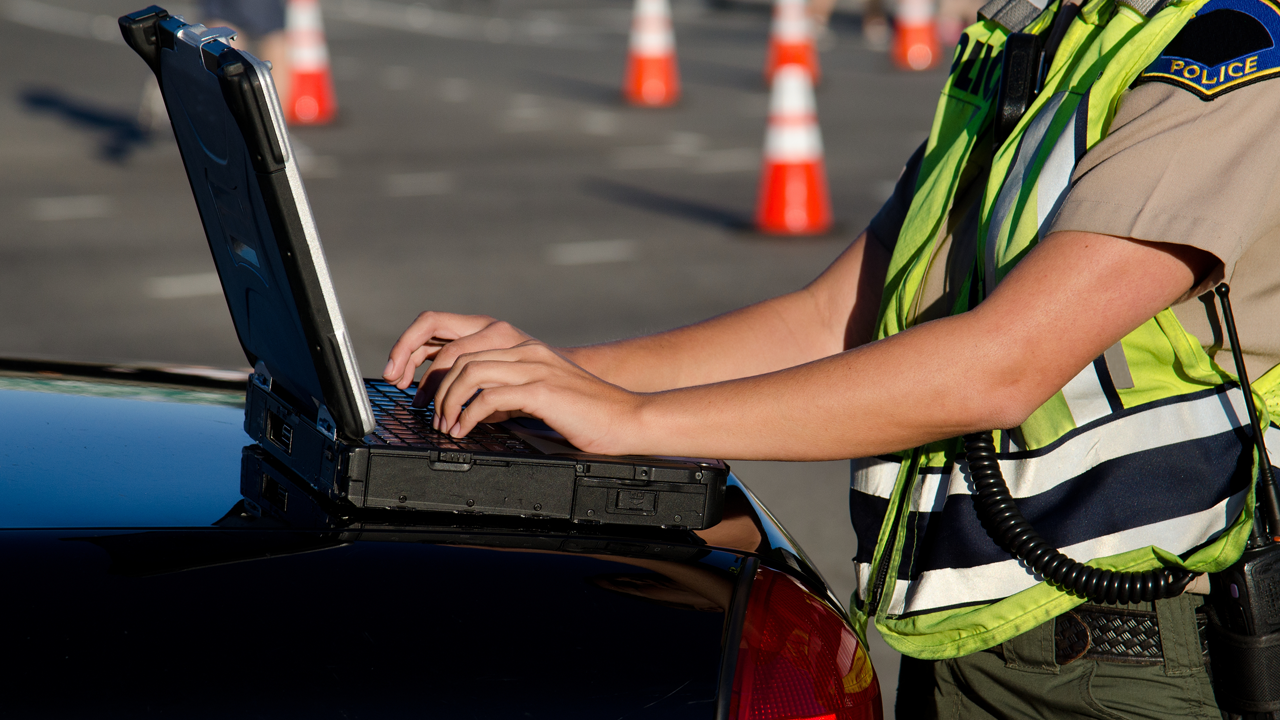
A mobile data computer is a computerized communication device installed in a police car. Officers use it to communicate with dispatch, receive GPS locations, directions, and critical information related to the call.
Law enforcement and emergency response agencies across the U.S. continue to fund new or upgrade existing mobile data computers as they become obsolete. MDC mobile systems provide many benefits. For example, an MDC can lessen the workload of 911 dispatchers because it allows them to send a message to many units at once. Sending messages via the MDC also provides a redundant communication method to their radios.
Common Applications for Mobile Data Computers
MDCs are in use not only by first responders, but also transit operators. Here are some of the key use cases:
- Transit Bus — A driver can use a bus mobile data computer to view stops, view and hear route instructions, and even receive vehicle issue alerts
- Fire Services — Responders can quickly access maps and addresses to improve response times
- Ambulances — Operators can navigate city streets and respond more quickly and remain in constant contact with dispatch and hospital personnel
- Law Enforcement — Officers can access communications from other agencies to coordinate their response more effectively
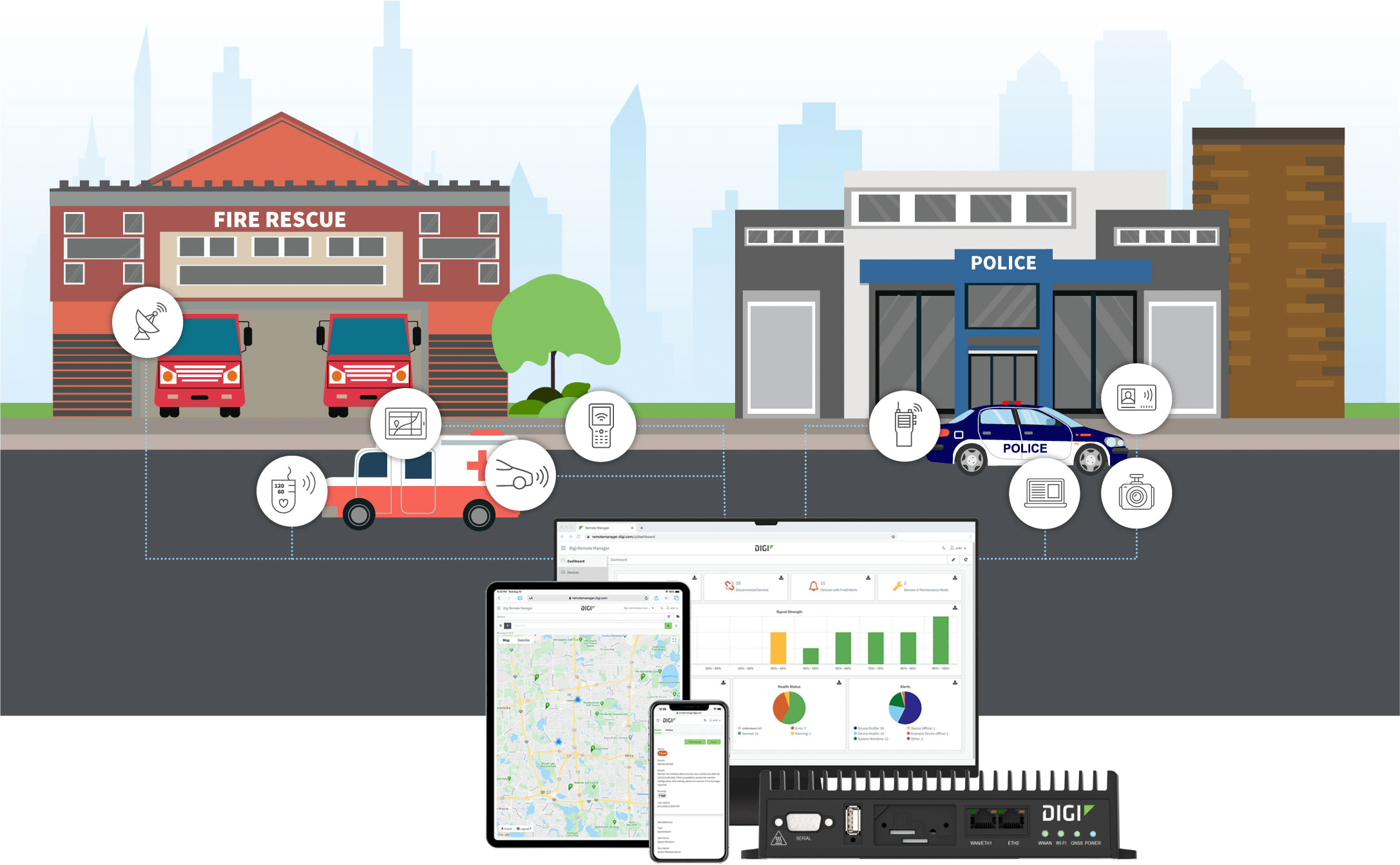
MDC Software
Implementing a mobile device computer system for a police department is one thing. But managing it is another. That’s where software plays an important role. Since lives are on the line in emergency response situations, software has a crucial task. It must tie everything together for dispatchers, officers and even the IT support staff.
Key Considerations When Selecting MDC Software
MDC software provides the intelligence to support your device functionality, connectivity. Key considerations include:
- Reliability — Software for police departments must support a full range of electronic devices, so uptime is critical
- Ease-of-use — Police mobile data computer software should be easy to use, deploy, and integrate into existing systems, and should support the scalability of your technology investment, as well as system management, such as periodic firmware updates
- Security — Select law enforcement software that protects network security and performance in real time
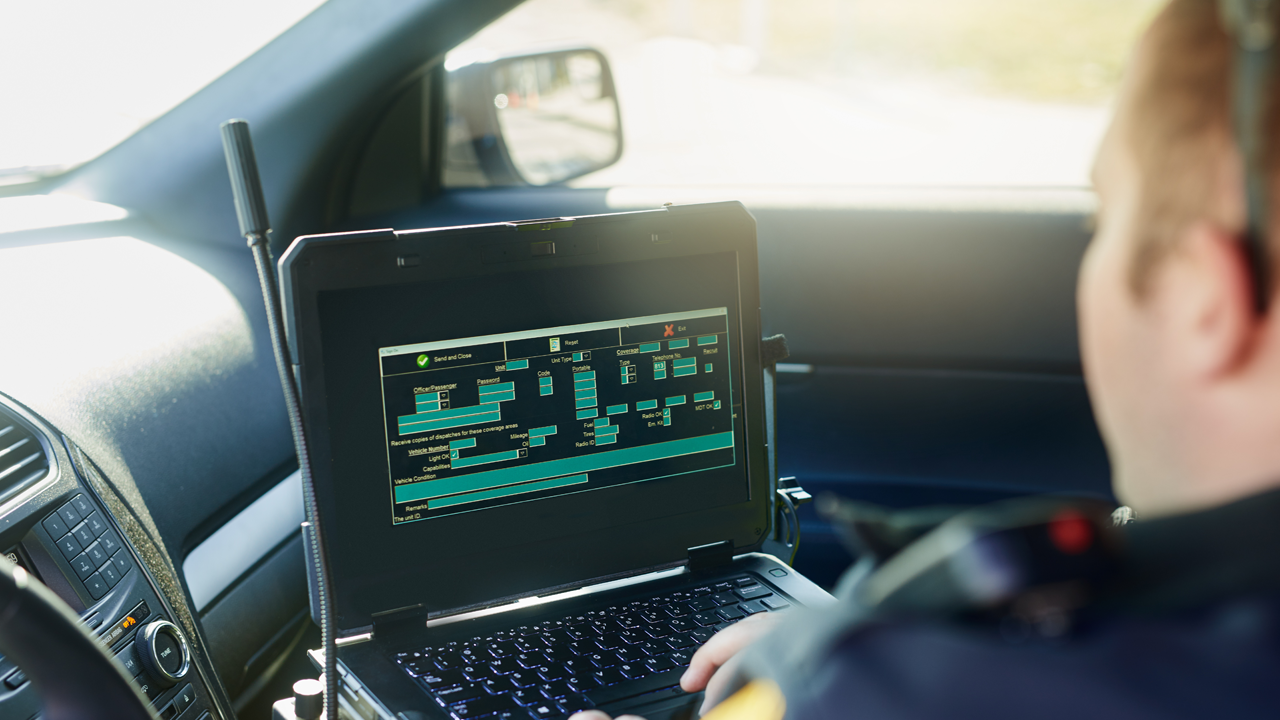
Digi 5G and LTE cellular routers and extenders are the cornerstone of mission-critical applications
MDC Hardware
Mobile computers for law enforcement are no longer nice to haves. Officers see them as essential to their work and safety. MDC hardware enables fast, reliable communication of images, video, GPS, situational awareness data, and audio/voice communications. Whether responding to a car crash or coordinating with other agencies during a natural disaster, officers depend on the communications network equipment. Officers need rugged routers made to withstand extreme events. They need to communicate through secured networks even when local communications are down.
Key Considerations for Selecting MDC Hardware
Routers, computers, terminals and peripherals must all work seamlessly together. Key considerations include:
- Connectivity to major U.S. first responder networks — Select hardware that supports communications through networks such as FirstNet®, Verizon FrontLine and T-Mobile Connecting Heroes
- Rugged, reliable and purpose built for extreme events — Police officers need rugged, high-performing hardware in squad cars, SWAT vehicles and armored vehicles
- Strong security — Routers should meet strict Federal Information Processing Standard 140-2 (FIPS 140-2) for cryptographic modules
Using Mobile Data Computers in Law Enforcement
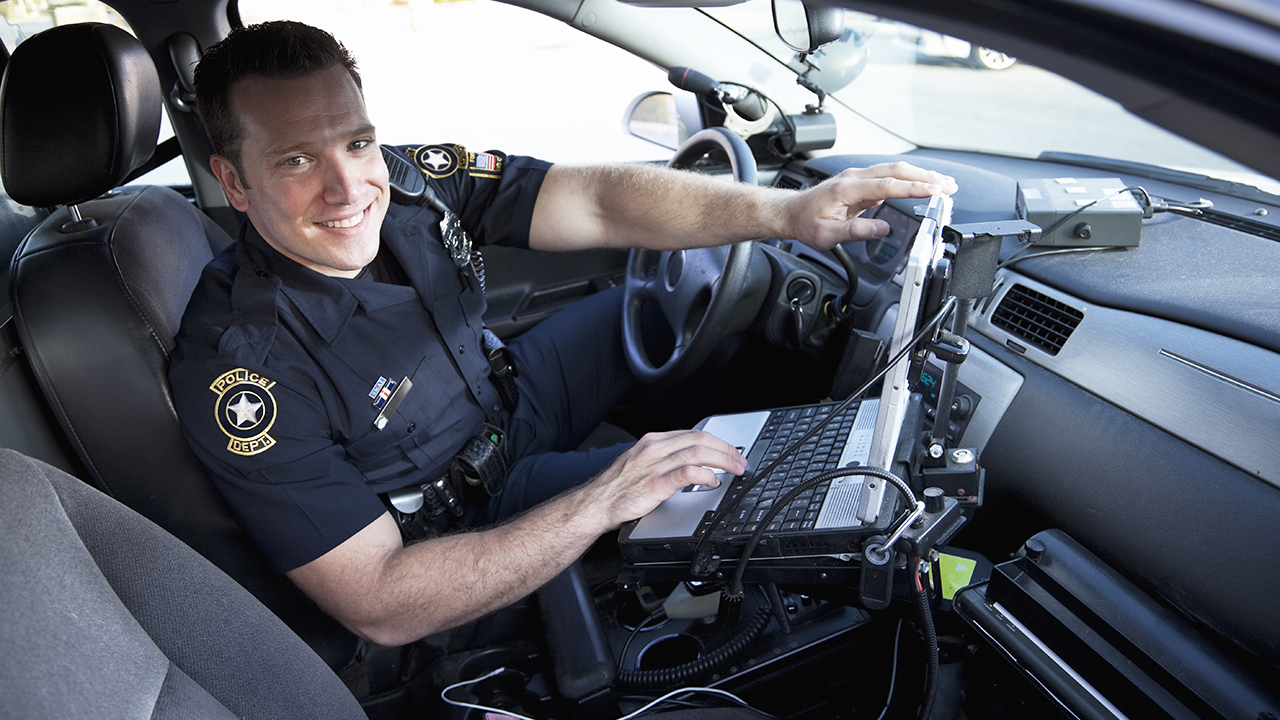
The use of Mobile Data Computers in law enforcement vehicles has continued to evolve over the years. Originally, these computers were composed of several components: CPU, display, keyboard, etc. In recent years, most departments have opted for rugged laptops that allow the officers to potentially remove them at the end of their shift or to take reports outside their vehicle.
Smart docks allow the officer to transfer that information with minimal effort. Further, as these police car computers have evolved, departments have been able to save money and time by utilizing software-based systems for Computer Aided Dispatch (CAD), Automated Vehicle Location (AVL), Video Review, e-Ticketing, and other applications. Critical information is now at the officers’ fingertips, a much more expedient and accurate alternative to receiving the information via 2-way voice radio. These technologies add a considerable measure of officer efficiency and safety.
How Police MDC Systems Are Used Today
Today, officers have advanced smart devices in their pockets and powerful tablet and laptop computers in their vehicles. They can access LTE and 5G networks and send and receive all sorts of media. They can share high-resolution images, video and audio media, and even real-time location data and voice. MDC police systems can even enable new ways to use and process data with police car computers.
Uses for Police MDC Systems
The performance and capabilities of MDCs are key to a range of first responder needs:
- Identification of suspects/missing persons — Officers can tap into many databases in the field
- Automated Vehicle Location — Using GPS satellite data, officers can track vehicle location and speed during surveillance operations
- Automatic driver license scanning/data input — Investigators can scan driver license and registration to directly record this information without typing
- Incident command coordination — Officers can use a police car mobile data computer to enhance communications with other agencies during an emergency
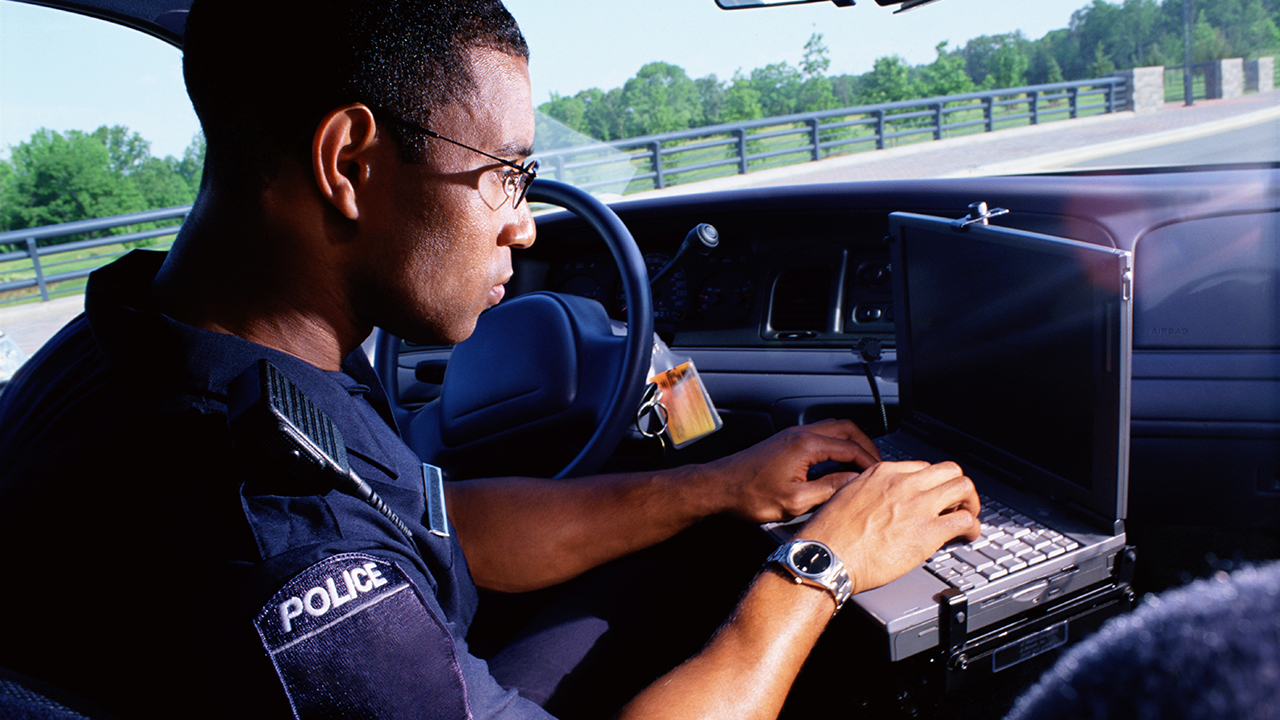
Benefits of Police Mobile Data Computers
With mobile access to intelligence, data, and real-time location information, law enforcement officers can make better-informed decisions and make them faster. When lives are at stake, every second counts. For example, officers can access computer-aided dispatch (CAD) data to get details about an emergency before they arrive. Information such as road conditions, flooding or downed electrical lines gathered en route help officers select the fastest and safest routes.
Benefits of Mobile Data Computers in Police Cars
The benefits are great, and growing, as technology advances and integration improves the functionality of the entire emergency vehicle communications ecosystem. Here are some key benefits today:
- Increased access to information — These systems enable on-the-go access to criminal databases, dispatch resources and other information.
- Better assessment of dangerous situations — Utilizing the newest and fastest data networks, police mobile data computers can allow officers to safely provide an overview of an unfolding situation. For example, accessing drone footage for real-time situational awareness.
- Cloud-based data sharing between law enforcement agencies — Cloud-based data enhances investigations by efficiently expanding access to information beyond jurisdictions.
- More time for patrol activities — Mobile data computers for police allow officers to submit reports from their cruisers rather than returning to the office.
Considerations for Mobile Data Computers in Police Cars
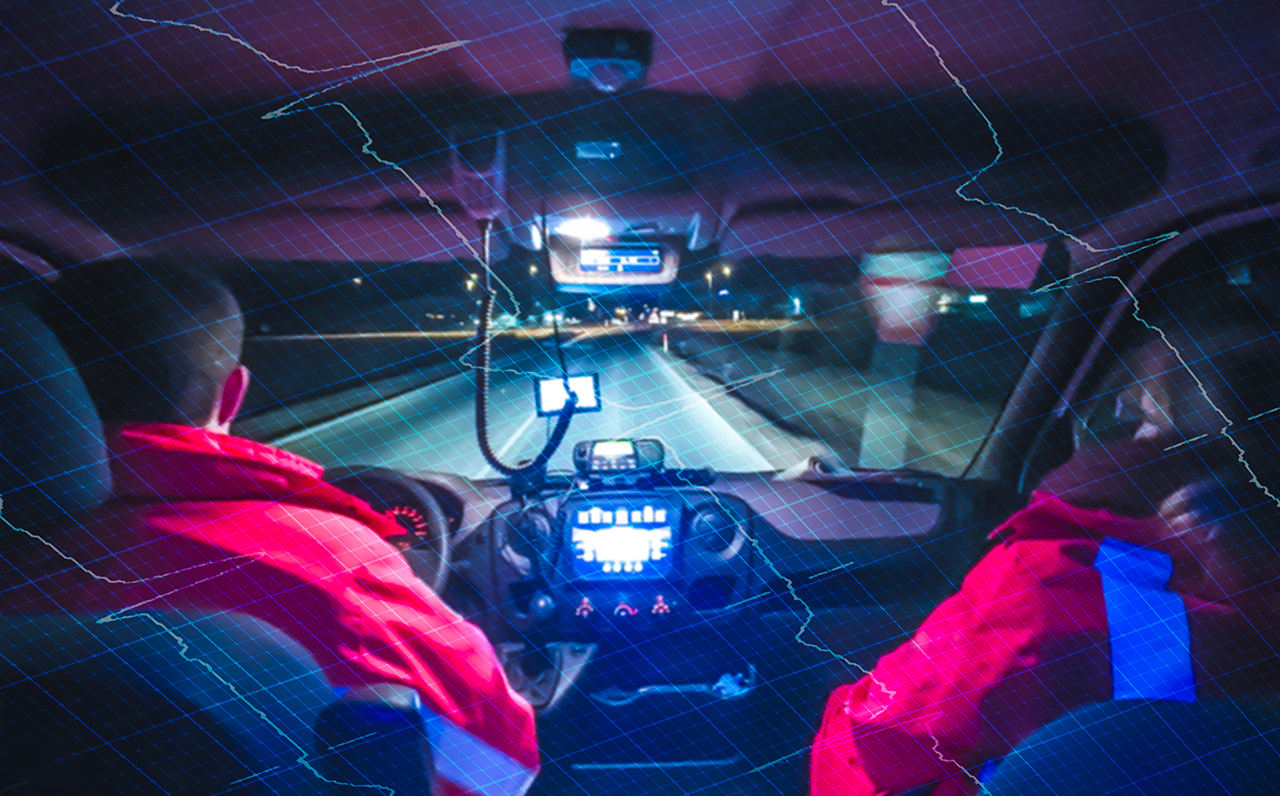
There is no doubt that mobile data terminals in police cars make an officer’s job much easier. Yet, adding a mobile data terminal system isn’t always simple. Here are some important MDC law enforcement considerations for selecting a mobile data terminal system.
Security
Security is foundational to any mobile data computer system, especially for those used in law enforcement. There are different layers of security to consider. Think about device security, confidential data privacy and live voice communications security. Security also extends to the network and rugged hardware that must handle extreme conditions.
Connectivity
4G LTE and 5G cellular communications connect people, machines and data. It is important to select a solution — including a high-performance mobile router and integrated management software and security — that supports law enforcement’s mission critical needs. For example, does the solution support the special networks set up for public safety agencies? Can your team manage the network remotely with intelligent connection management software?
To learn more, view our video interview, Insights on Connectivity and Security in Public Works.
Compatibility
Compatibility is important. Think about the impact on your officers as you integrate a mobile data computer for law enforcement into an existing system. Even upgrading a mobile data computer system can cause issues. A high-performance mobile router that supports multiple devices and multiple carriers can go a long way toward reducing complexity and down time.
Accessibility
When a network or field device goes down, IT teams need a way to restore them remotely. That’s why a remote monitoring and management feature is especially useful. A solution like Digi Remote Manager® that supports out-of-band access, and enables network managers to get devices back on the network quickly.
Cost
Officers send and process a lot of data in their daily activities, including real-time video, mapping and situational awareness information that is critical for safety and efficiency. But data transmission can also be costly for lean agency budgets. The cost of police mobile data terminals is always a factor in selecting a solution. Law enforcement agencies should select a solution that offers volume pricing options and reduces the number of devices required for efficient operations. That way, your agency can deliver value from this mission-critical investment.
Learn About Digi’s Complete Connectivity Solution for Public Safety and Emergency Services Mobile Networks
.png?width=946&height=532)
Digi SAFE™ is a complete connectivity solution
Access. Security. Connectivity. Safety. Mobile data computers for law enforcement have transformed the way officers do their jobs. Officers today have much better situational awareness thanks to evolving technology and faster networks. Finding the right technology partner for your implementation is key to creating an efficient and seamless experience for officers in the field. Secure and robust equipment with management software to support widespread deployment is essential. That’s where Digi can help.
Digi designs and builds solutions to meet unique law enforcement challenges. Our solutions support always on, always connected and always secure operations. We also made our solutions easy for your IT team to deploy and manage. Best of all, we provide everything you need to get started.
Digi 5G and LTE Cellular Routers and Extenders are fully integrated solutions designed to support the most mission critical applications. Our tools and software enable rapid configuration and deployment. They also help you with monitoring, troubleshooting and out-of-band management.
Digi FirstNet Trusted™ devices such as Digi TX54, Digi TX64 5G, Digi TX64 5G Rail, Digi IX20, Digi EX12 and Digi EX15 use the FirstNet network for critical communications — ensuring non-stop connectivity, even in broadscale public emergencies.
The upcoming Digi TX40 5G cellular router is a purpose built, intelligent 5G wireless communications hub for public safety and fleet vehicles. It is FirstNet capable, meets the U.S. government FIPS 140-2 cybersecurity standard and is completely configurable with Digi Remote Manager.
Digi SAFE™ puts it all together for you in one complete, affordable solution that meets the needs of police precincts and emergency response teams of all sizes.
Take the next step to learn how we can become your mobile device computer solution partner.
Next Steps